Chicago's Amazon Books: 'No Quirks, No Warmth, No Store Cat'
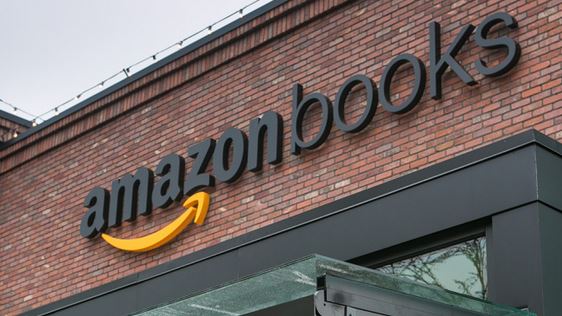
"Body snatchers come to mind."

"Body snatchers come to mind."
 Rakuten Kobo has bought Shelfie, the service that allowed customers to obtain free or discounted e-book versions of books in their print libraries and receive recommendations based on print books they already own. (Via iOS and Android devices, users scanned the spines of their books.) The deal includes technology assets, IP and infrastructure, as well as Shelfie's team, which Kobo described as specializing in "the application of big data and machine learning for book discovery."
Rakuten Kobo has bought Shelfie, the service that allowed customers to obtain free or discounted e-book versions of books in their print libraries and receive recommendations based on print books they already own. (Via iOS and Android devices, users scanned the spines of their books.) The deal includes technology assets, IP and infrastructure, as well as Shelfie's team, which Kobo described as specializing in "the application of big data and machine learning for book discovery."
Shelfie was founded in 2013 by Peter Hudson and Marius Muja as BitLit Media Inc. and grew to offer more than 450,000 e-books and audiobooks that booklovers could purchase at a discount or download free of charge. Shelfie ceased operations in January, and Kobo had worked with the company to help customers transfer their e-book libraries to Kobo's platform, so that they would continue to have access to their e-books. Kobo is now working on integrating the Shelfie platform with its Android and iOS apps.
Rakuten Kobo CEO Michael Tamblyn said, "We know our best customers move fluidly between formats, reading digitally and in print, and we welcome this opportunity to bring their entire reading life together. People who come to Kobo already have a history of reading in print that we don't want to ignore. This acquisition will allow us to expand our ecosystem by incorporating Shelfie's innovative advances in book recommendation, discovery, and bundling, which is especially interesting considering our large network of bricks-and-mortar bookselling partners."
Shelfie CEO Peter Hudson commented: "We're proud of what we've built, and in Kobo, have found the perfect platform to expand on what Shelfie has to offer, on a global scale. Finding the next book to read is a challenge that resonates with many booklovers, who increasingly are looking to personal recommendations as opposed to algorithm-based suggestions. With Shelfie's technology, avid readers will easily be able to find the next must-read book."
 |
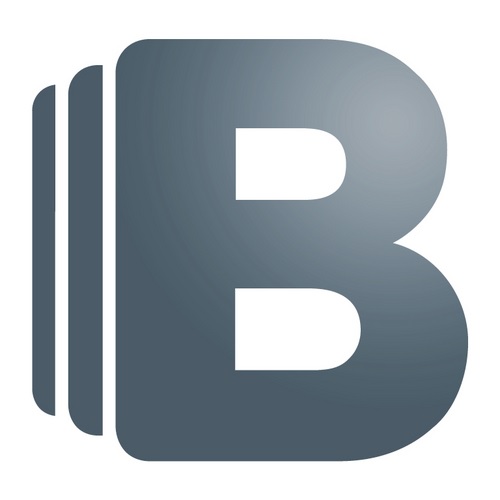 |
In a move that boosts its Spanish and Latin American operations, Penguin Random House has purchased Ediciones B from Grupo Zeta. Ediciones B, which publishes the imprints B, Bruguera, Vergara, Nova, B de Blook, B de Books, B de Bolsillo and B.cat, and has a strong presence in Spain, Argentina, Chile, Colombia, Mexico, Uruguay and Venezuela, will join Penguin Random House Grupo Editorial (PRHGE). The expanded PRHGE division is expected to publish 2,000 titles per year.
Ediciones B, founded in Barcelona in 1986, will run independently until the deal is finalized. Current PRHGE CEO Núria Cabutí Brull will continue in that role with the support of Ediciones B general manager Román de Vicente. The acquisition of Ediciones B adds notable authors Svetlana Alexievich, Alice Munro, Mario Vargas Llosa, Gabriel García Márquez, José Saramago, J.M. Coetzee, Orhan Pamuk, Doris Lessing, V.S. Naipaul and Günter Grass, among many others, to PRHGE's original Spanish-language titles and translations into Spanish and Catalan.
"With the acquisition of the highly regarded publishing house Ediciones B, we further expand and grow in the strategically important Spanish-speaking markets, and we build upon our commitment to providing our authors with outstanding publishing resources and maximum reach," said Markus Dohle, CEO of Penguin Random House.
"This milestone combination also will enable us to offer our readers an even wider variety of reading experiences, along with our ongoing commitment to excellence across all Spanish-speaking markets," said Núria Cabutí Brull. "This is a commitment we successfully embraced three years ago when we acquired the trade book business of Santillana. With Ediciones B, we are once again thrilled to have the opportunity to combine the knowledge, experience and talent of two highly-regarded publishing houses."
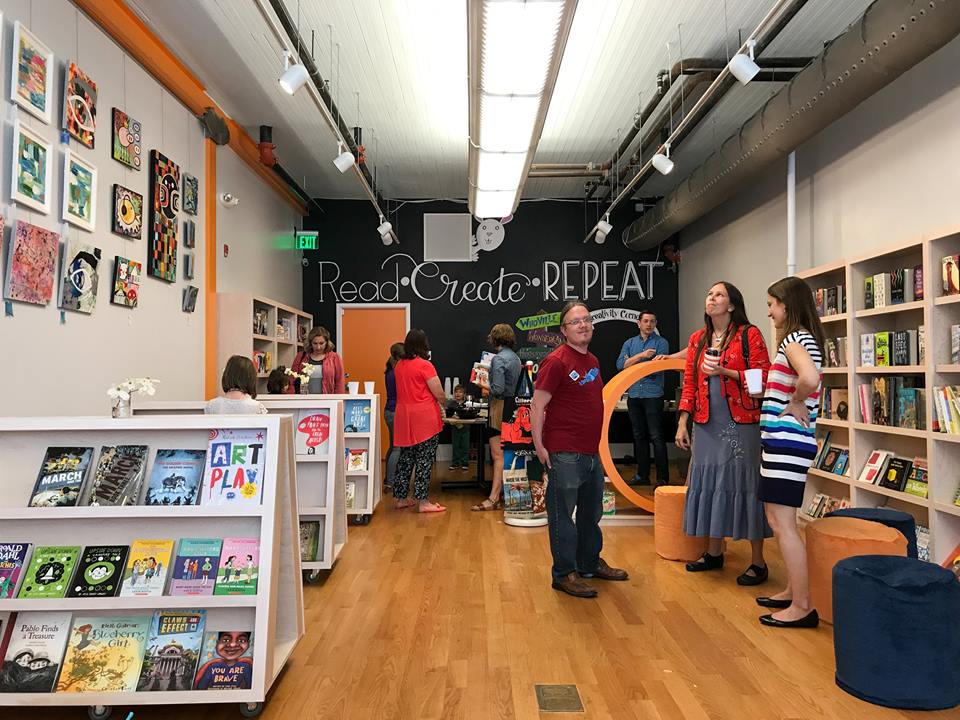 |
|
| via | |
Read with Me, the children's bookstore and art gallery/space in downtown Raleigh, N.C., that's opening tomorrow, is taking some unusual book merchandising approaches, as outlined by WRAL.
Most books will be displayed face out, which owner Christine Brenner, a former teacher and school librarian, said is intended to emphasize the books' cover art and make them easier to find.
The shelf organization is what Brenner called "grow up with books" style: books for babies and young preschoolers are on bottom shelves. Above them are books for lower elementary school readers. Above those are books for upper elementary school readers. Above those are books for middle and then YA readers. "I was trying to think about how I can make it easy for somebody to find the books," she commented.
Because of limited shelf space and "a desire to introduce readers to contemporary authors and diverse voices," most of the books in stock have been published in the last several years. "Everyone knows the classics and you can get them everywhere," Brenner said. "I wanted to bring in what the contemporary voices are saying."
In other ways, the store is like many other indies: Brenner wants Read with Me to be a community gathering spot for story times, classes, events and more.
 |
|
| Jo Cribb | |
Jo Cribb has been appointed CEO of the New Zealand Book Council, and will assume her new role May 8, Booksellers New Zealand reported. She most recently was CEO of the Ministry for Women (2012-2016) and, before that, was deputy children's commissioner. Cribb succeeds Catriona Ferguson, who left earlier this year to become director of the Publishers Association of New Zealand.
Book Council chair Peter Biggs said Cribb "is a proven leader and, very importantly, she has vast experience in delivering and executing transformation strategies and driving social change. These are vital skills as the Book Council works towards its goal of being an advocacy and agitation organization creating thriving communities through reading."
Cribb added: "I've been a reader all my life and I have spent many years in leadership roles seeking to bring about social change in this country. This role brilliantly combines my two enthusiasms--leading a well-respected organization into a new era and promoting social, cultural and economic well-being, resulting from a national love of reading--and supporting our renowned New Zealand writers."
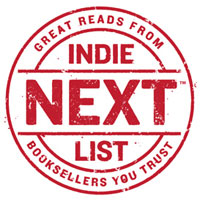 Yesterday, the American Booksellers Association's e-newsletter edition of the Indie Next List for April was delivered to more than a third of a million of the country's best book readers. The newsletter was sent to customers of 102 independent bookstores, with a combined total of 400,000 subscribers.
Yesterday, the American Booksellers Association's e-newsletter edition of the Indie Next List for April was delivered to more than a third of a million of the country's best book readers. The newsletter was sent to customers of 102 independent bookstores, with a combined total of 400,000 subscribers.
The e-newsletter, powered by Shelf Awareness, features all of the month's Indie Next List titles, with bookseller quotes and "buy now" buttons that lead directly to the purchase page for the title on the sending store's website. The newsletter, which is branded with each store's logo, also includes an interview (from Bookselling This Week) with the author whose book was chosen by booksellers as the number-one Indie Next List pick for the month, in this case The Women in the Castle by Jessica Shattuck (Morrow).
For a sample of the April newsletter, see this one from Vintage Books, Vancouver, Wash., which just began sending the e-version of the Indie Next List.
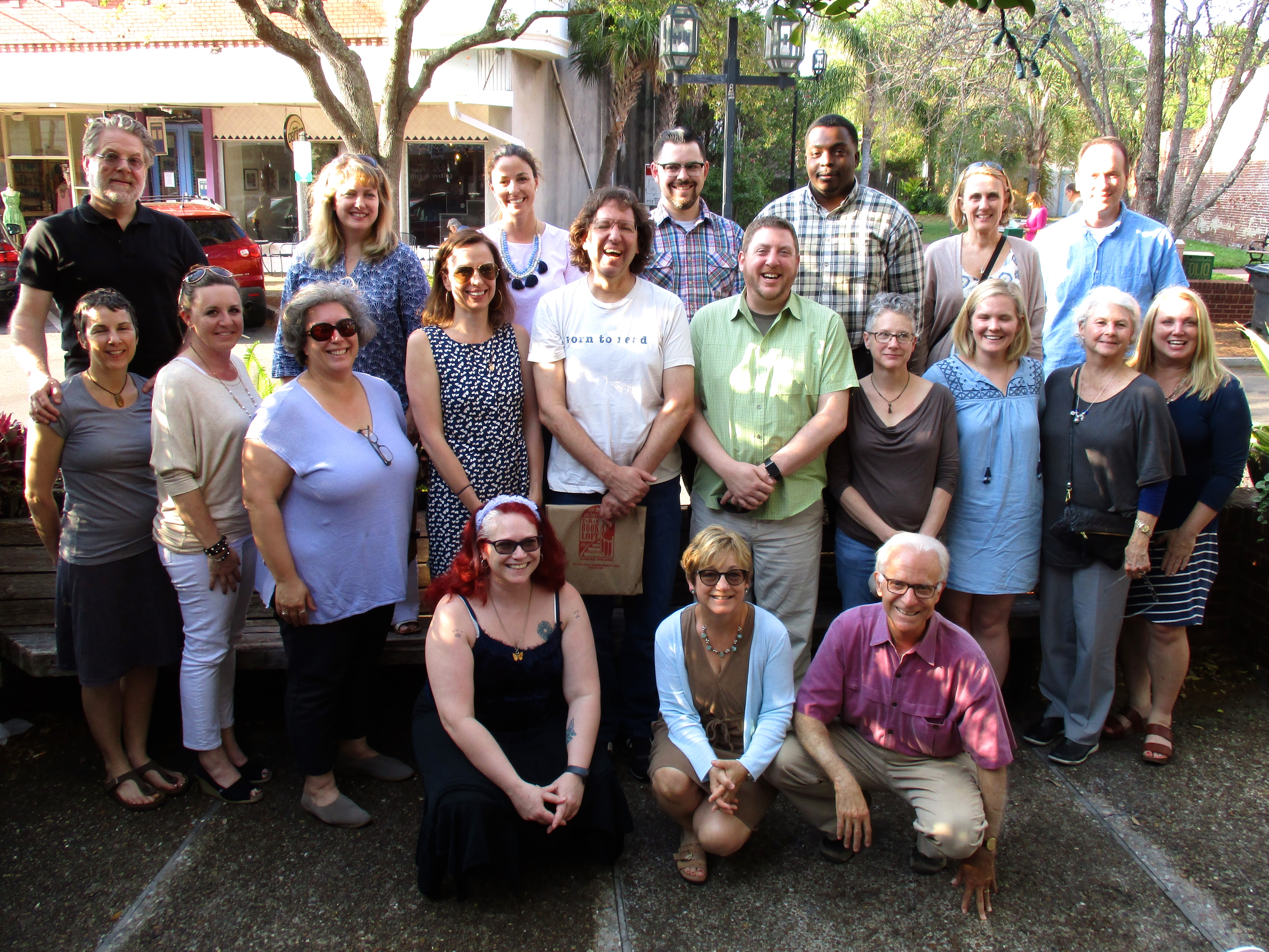
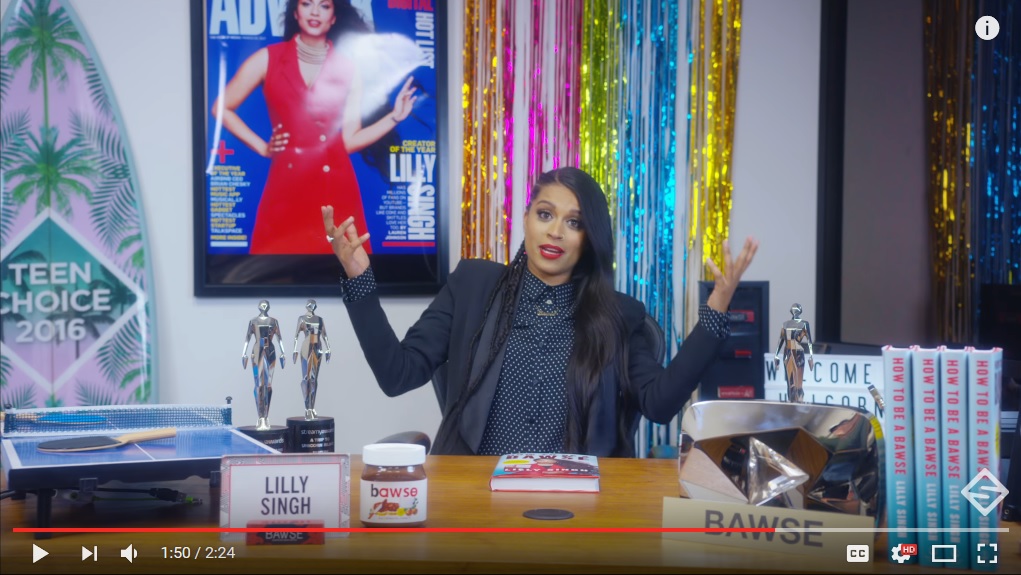 Penguin Shop, a permanent branded store located in the lobby of the publisher's downtown Toronto headquarters, "is showing off its powers of transformation with its first branded takeover," Quillblog reported. The 158-square-foot space is currently dedicated to YouTube phenomenon Lilly Singh's new book, How to Be a Bawse: A Guide to Conquering Life (Ballantine Books), and features Bawse book spines, merchandising and a floor graphic. Singh, who was in Toronto as part of a 28-stop international tour, stopped by the store recently.
Penguin Shop, a permanent branded store located in the lobby of the publisher's downtown Toronto headquarters, "is showing off its powers of transformation with its first branded takeover," Quillblog reported. The 158-square-foot space is currently dedicated to YouTube phenomenon Lilly Singh's new book, How to Be a Bawse: A Guide to Conquering Life (Ballantine Books), and features Bawse book spines, merchandising and a floor graphic. Singh, who was in Toronto as part of a 28-stop international tour, stopped by the store recently.
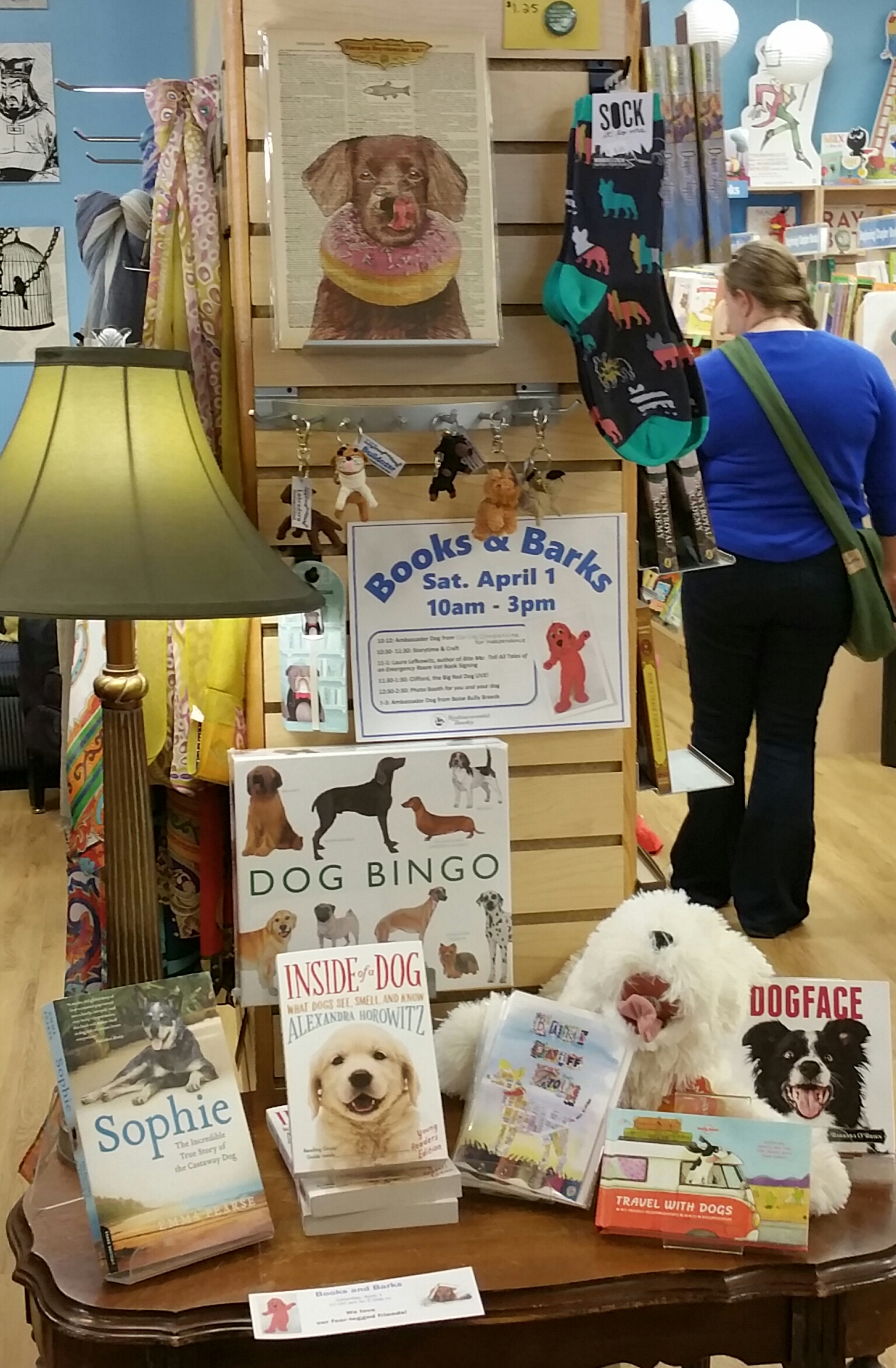 |
|
| All dog books were "buy 3, get 1 free" for Books & Barks. | |
Last Saturday, the first Books & Barks Celebration took place at Rediscovered Books, Boise, Idaho, an all-day event that that celebrated dogs in a variety of ways. A feature was two ambassador dogs who were "utterly relaxed and complacent, even when getting pets and cuddles from several little kids at once as their human representatives shared great information with Rediscovered Books patrons," according to bookseller and event organizer Jenny Sternling. In addition, Clifford the Big Red Dog (an actor in costume) visited. There was also a storytime and craft session, and Laura Lefkowitz, author of Bite Me: Tell-All Tales of an Emergency Veterinarian, had a signing event. For several hours, customers could be photographed reading to their dogs in the Books & Barks photo booth. And, of course, there were plenty of dog treats and dog books available.
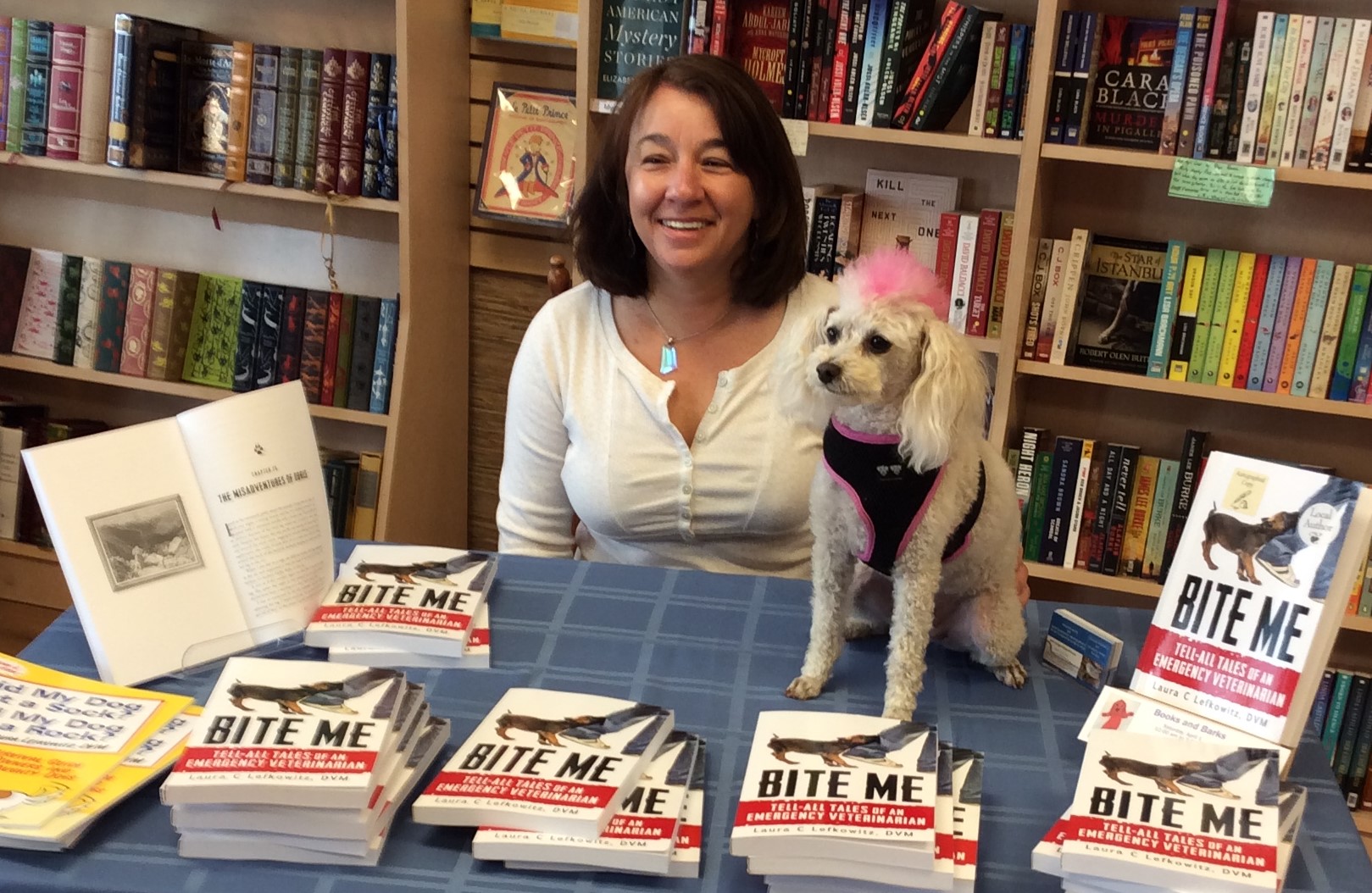 |
|
| Author Laura Lefkowitz and friend | |
Sternling added that many customers brought their dogs, which was a major goal of the event. "We found it tremendously fun to meet all their canine buddies. The energy it brought to the store was delightful." All the dogs got along well, "except for one golden retriever who gave Clifford a little growl."
The idea for the event came about when Sternling was being interviewed to work at Rediscovered Books. Owners/managers Laura and Bruce Delaney asked her what kind of event she might create and, Sternling noted, "Fortunately, because I knew that Rediscovered Books presents lots of great events, I'd thought about that before my interview and answered, 'Dog day!' " The only part of her idea that turned out to be impracticable was having adoptable dogs at the store during the event.
Rediscovered Books plans to make Books & Barks an annual celebration.
Ingram Publisher Services has added five new publisher clients:
Burleigh Dodds Science Publishing, Cambridge, England, publishes scientific guides to agriculture and livestock with a focus on sustainability and best practices. Its authors are experts from academic institutions around the world.
Ramsey Press, Brentwood, Tenn., belongs to talk radio host, author and financial adviser Dave Ramsey. It publishes fiction and nonficiton for all ages with a focus on money management, investing, retirement and motivational materials.
PIE International, Tokyo, Japan, began as a publisher of books for graphic designers before expanding into photography, art, advertising, manga and more, all centered on Japanese culture. Its name stands for Pretty, Impressive, Entertaining.
TMG Publishing, New York, N.Y., is part of the TMG Firm, a business consulting group, that publishes fiction and nonfiction for children and adults.
Oceanview Publishing, Longboat Key, Fla., publishes mystery, suspense and thriller titles in a huge range of subgenres, from aviation thrillers to corporate intrigue and legal mysteries.
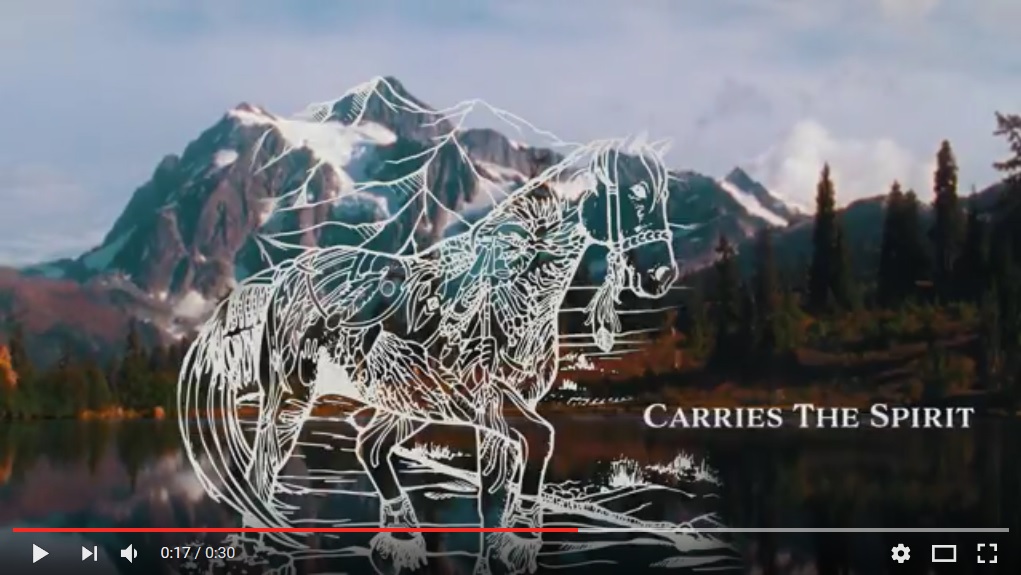 The Trail of Painted Ponies Coloring Book, Native American Edition by Rod Barker (Blue Star Premier).
The Trail of Painted Ponies Coloring Book, Native American Edition by Rod Barker (Blue Star Premier).
Today:
Fresh Air: Peggy Orenstein, author of Girls & Sex: Navigating the Complicated New Landscape (Harper Paperbacks, $15.99, 9780062209740).
Sunday:
NPR's Weekend Edition: Barbara Lynch, author of Out of Line: A Life of Playing with Fire (Atria, $26, 9781476795447).
"After a career full of performances in front of the camera, Tobey Maguire is ready to take his place behind it," according to Deadline, which reported that Maguire's Material Pictures and Lawrence Grey's Grey Matter Productions have acquired the screen rights to Blood on the Snow by Jo Nesbo. They will develop it as a directorial debut vehicle for Maguire, with Nesbo writing the script.
The 19 writers who won the American Academy of Arts and Letters 2017 awards in literature can be seen here. The prizes, totaling $265,000, honor both established and emerging writers of fiction, nonfiction, drama and poetry. They will be presented at the Academy’s annual Ceremonial in New York City next month.
---
A longlist has been announced for the £10,000 (about $12,450) Desmond Elliott Prize, which honors a first novel written in English and published in the U.K. A shortlist will be released May 5, and the winner revealed June 21. This year's Desmond Elliott longlist:
Harmless Like You by Rowan Hisayo Buchanan
My Name Is Leon by Kit de Waal
Little Deaths by Emma Flint
Montpelier Parade by Karl Geary
The Transition by Luke Kennard
Ithaca by Alan McMonagle
The Sacred Combe by Thomas Maloney
They Are Trying to Break Your Heart by David Savill
Golden Hill by Francis Spufford
Forbidden Line by Paul Stanbridge
The two most popular books in March at Reading Group Choices were One Thousand White Women: The Journals of May Dodd by Jim Fergus (St. Martin's Press) and The News from the End of the World by Emily Jeanne Miller (Houghton Mifflin Harcourt).
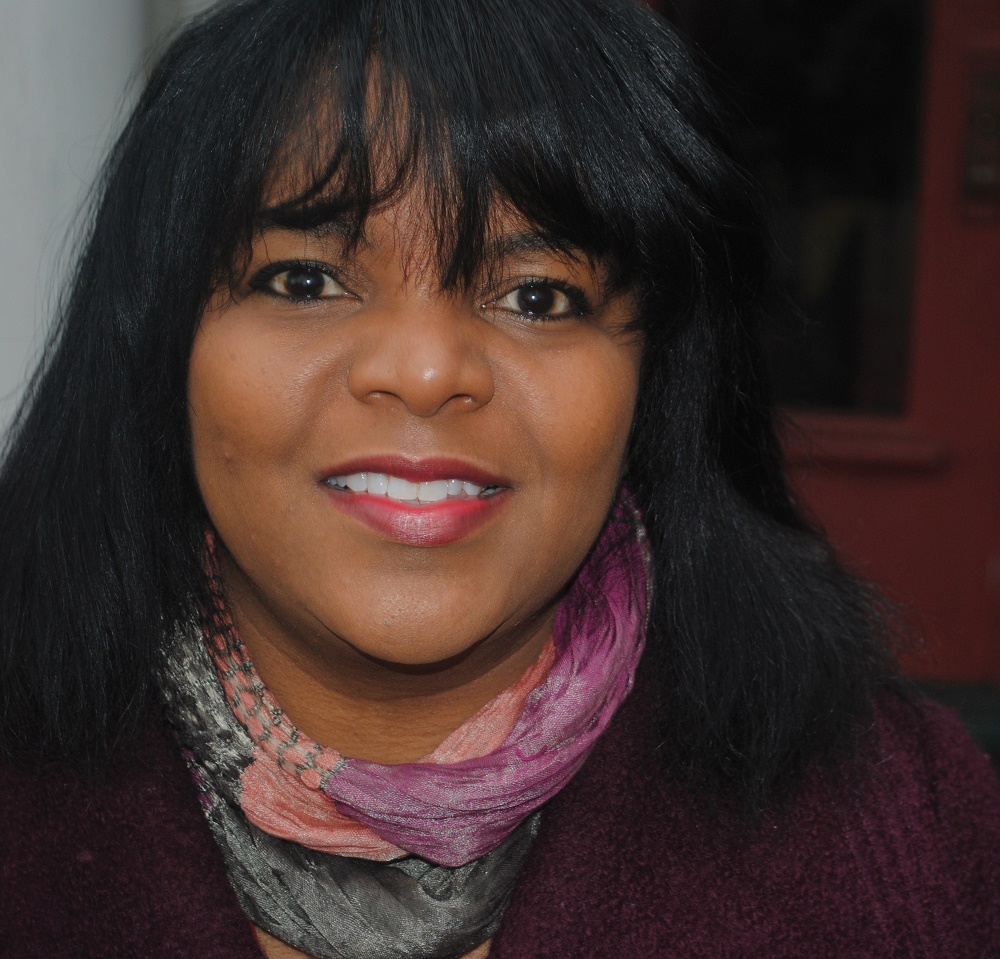 |
|
| photo: Bob Watts | |
Stephanie Powell Watts is an associate professor of English at Lehigh University in Pennsylvania, and has won a Whiting Award, a Pushcart Prize and the Southern Women's Writers Award for Emerging Writer of the Year. She is the author of the short story collection We Are Taking Only What We Need. Her debut novel, No One Is Coming to Save Us, was published by Ecco on April 4, 2017.
On your nightstand now:
Colson Whitehead's Underground Railroad, Homegoing by Yaa Gyasi, Tana French's The Trespasser (recommended by my husband). I like to keep a couple of books going at a time. So often I find that one book is speaking to another in fascinating ways.
Favorite book when you were a child:
When I was very young, I read William Steig's Sylvester and the Magic Pebble. This book delighted and haunted me. Sylvester makes a strange wish out of his fear in the moment that erases him from the community (literally) and especially from his parents. I ached for Sylvester and his parents. I hope that fear (legitimate fear--Sylvester faced a lion) does not cause us to lose ourselves and everything we cherish in our mean old world.
Your top five authors:
This is a list that is always changing but here are a few books I love by a few authors I love:
Edward P. Jones is my hero. His writing is wise, lyrical, funny and gut-wrenchingly honest. Start with Lost in the City and read everything else.
Elizabeth Strout's Olive Kitteridge is a phenomenal work. Olive is so dislikable and sad and haunted. The chapter when she visits her grown son kills me--so cringe-worthy and true. Get out of my head, lady. But I do love that pain.
I was sick and jealous and unworthy after I read Jennifer Egan's A Visit from the Goon Squad. To keep going, I kept repeating to myself, It really isn't that good. But it is.
When people ask me what writers are doing amazing things with the short story, I direct them to Antonya Nelson's Funny Once, Junot Díaz's This Is How You Lose Her and Alice Munro's Hateship, Friendship, Courtship, Loveship, Marriage. These are all books I routinely give as gifts.
Book you've faked reading:
I once told a friend that I had seen the Kevin Costner movie Dances with Wolves. I have no idea why I said that. I have never seen that movie. So I've probably claimed to have read any number of books that I haven't finished (or started). I use to claim to have read the Bible, but I know I skipped over many, many of the begetting chapters. 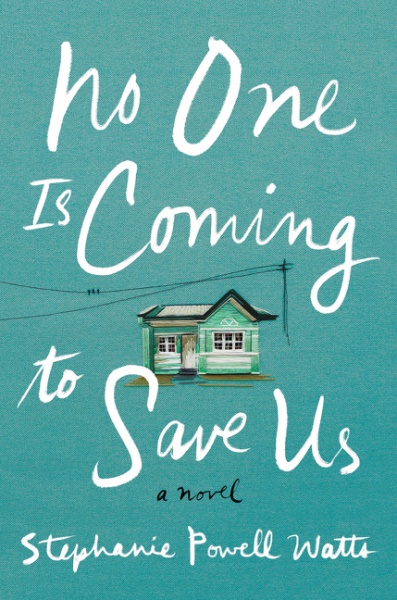 Book you're an evangelist for:
Book you're an evangelist for:
When I was 16, I read John Updike's Rabbit, Run. It was an old book by then and I was way behind the tide, but I'd heard about it and was curious. Rabbit Angstrom, the main character, was 26 and married, about to be a father. He felt old and was afraid that his life was following a sad, predictable trajectory. I hated him. I hated his journey. I was a kid and sure that life had many wonders in store without ennui and navel-gazing angst. I told everyone I met how terrible I thought the book was. Then I turned 26 and then 30 (that is all I'll admit to) and felt some of the same worthlessness and despair. What did I desperately want to do then? Run like hell. I kept a library title card--"Rabbit Run Updike, John"--in my pocket and then on my desk for years as a reminder that what you feel now you might not always feel. I needed to tell myself that even a misogynist, racist-lite character from nowhere Pennsylvania could show me something good and necessary about living a life.
Book you've bought for the cover:
I love to shop at thrift and secondhand stores. I tell myself that I like the idea of the storied lives of the objects I find, but really I'm just cheap. A few years ago at a store called Carolina Thrift in Greensboro, N.C., I came across a treasure trove of books of short fiction. Downsizing or death (the ultimate downsize) meant that someone had cleaned out his or her library and beautiful books by Andre Dubus, Rick Bass, Bobbie Ann Mason, Rick Moody, Lee Smith. The one that caught my eye and made me keep digging for the others was Ellen Gilchrist's Victory over Japan. A young red-headed woman sits up in a lovely daybed. She does not look at you or acknowledge your existence, but her mean-eyed black cat stares directly into your eyes. You have been seen. The cover was aware and oblivious to the reader. I loved that.
I am also a big fan of Helen Oyeyemi's books and her covers. Boy, Snow, Bird with the flowering snake is a knockout.
Book you hid from your parents:
I spent most of my youth as a Jehovah's Witness. My mother and one of my four brothers are still active in the faith. Religious people understand the power of an insistent idea. They know how an idea turned belief can transform a mind and direct a life. It is of course the job of a parent to shelter, support and direct a child. Though we were very religious, my mother did not censor what I read. She did call Judy Blume's Forever trash (a scene that played out in many households that I knew) but she didn't stop me from reading it.
Book that changed your life:
Edward P. Jones's Lost in the City was and is an inspiration to me. Jones's writing showcases the lives of ordinary black D.C. residents in their everyday working, school and home existences with such love, respect and compassion. The characters are not members of the elite or moneyed classes, but representative of the millions of men and women who worked for the betterment of their children with little hope of seeing that better world themselves. People like Jones's mother, like my grandmother, like so many of the people I know and have met and admire for their vigor, their heart and their sheer unwillingness to give up. Jones's work is not easy; however, he shows me that no one is fully knowable and in every life there are tricks and secrets and Bluebeard doors only the bravest among us should open. Jones opens those doors. Thank God for that.
Favorite line from a book:
In a great writer's sentences there are worlds. Here are just a few I love:
"In an otherwise unremarkable September morning, long before I learned to be ashamed of my mother, she takes my hand and we set off down to begin my very first day of school." --from "The First Day" by Edward Jones
"Stop picking around the edges of the world. Take advantage, and if you can't take advantage, take disadvantage. We live here. On this planet, in this nation, in this county right here. Nowhere else! We got a home in this rock, don't you see! Nobody starving in my home; nobody crying in my home, and if I got a home you got one too!" --from Song of Solomon by Toni Morrison
"Gatsby believed in the green light, the orgastic future that year by year recedes before us. It eluded us then, but that's no matter--tomorrow we will run faster, stretch out our arms farther.... And then one fine morning-- So we beat on, boats against the current, borne back ceaselessly into the past." --from The Great Gatsby by F. Scott Fitzgerald
Five books you'll never part with:
Edward P. Jones's Lost in the City, Toni Morrison's Song of Solomon, J.D. Salinger's Nine Stories (this was the first gift my husband ever gave me), Gayl Jones's The Healing, John Updike's Rabbit, Run, Rita Dove's Thomas and Beulah and F. Scott Fitzgerald's The Great Gatsby.
Book you most want to read again for the first time:
Gayl Jones's The Healing was a revelation to me when I read it first, about a decade ago. The narrator is strange and spends a lot of time in her head, concocting conversations and creating alternate realities. Jones isn't afraid of revealing important truths about sex and racial power and violence that her main character witnesses and endures. The book is an experience. I don't know anyone else that writes like Gayl Jones.
Woman No. 17 by Edan Lepucki (Hogarth, $26 hardcover, 320p., 9781101904251, May 9, 2017)
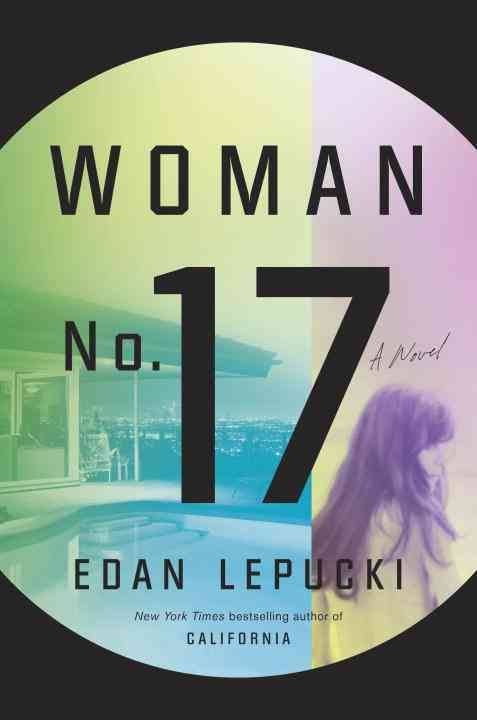 Woman No. 17, Edan Lepucki's follow-up to her breakout post-apocalyptic novel California, is as mysterious and unpredictable as its troubled protagonists, the unusually named Lady Daniels and S.
Woman No. 17, Edan Lepucki's follow-up to her breakout post-apocalyptic novel California, is as mysterious and unpredictable as its troubled protagonists, the unusually named Lady Daniels and S.One of my April traditions for many years has been to consider not writing about Poetry Month, but I always succumb to temptation. It's a weakness. I read poetry almost daily; I write about it from time to time here; and poetry occupies significant real estate on my bookshelves.
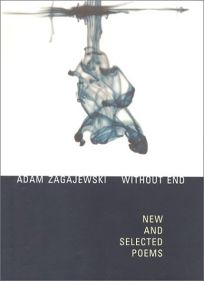 Speaking of which: During a recent, noble (if still not quite finished) attempt to bring order to the semi-chaos of our personal library, I became reacquainted with my copy of Adam Zagajewski's Without End: New and Selected Poems. I bought it during the winter of 2002, though I had first heard him read from his work in the summer of 2001. At the time, I wrote about how a poet's words, spoken as well as written, can, in just the right light, open eyes. My eyes, at least. The beginning of Poetry Month 2017 seems like an appropriate moment to reflect on my first encounter with Zagajewski's work.
Speaking of which: During a recent, noble (if still not quite finished) attempt to bring order to the semi-chaos of our personal library, I became reacquainted with my copy of Adam Zagajewski's Without End: New and Selected Poems. I bought it during the winter of 2002, though I had first heard him read from his work in the summer of 2001. At the time, I wrote about how a poet's words, spoken as well as written, can, in just the right light, open eyes. My eyes, at least. The beginning of Poetry Month 2017 seems like an appropriate moment to reflect on my first encounter with Zagajewski's work.
Begin with lines from his poem "Letter from A Reader":
When the poet read, I hadn't seen any of the poems yet. His voice made words appear in the air before him. When the poet read, I leaned forward into those words to receive the brunt, the wave, the wash of image, and the sound of lines forged and bent in unlikely combinations ("A poem grows/ on contradiction but can't cover it.") that felt as fresh and inevitable as water down a hill (Europe's "coarse plaid of borders" or clouds that "swim on their backs, / gazing calmly at the sun.").
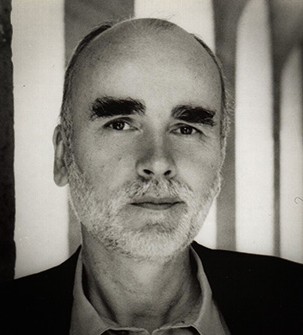 When the poet read, I heard the sketchbook of his work, and wanted more. Later, when I read the poet, sketches filled with color, hazy borders were framed, outlines of images came alive, the words irresistible in their knife-edged engagement with, and disengagement from, a mad and beautiful world.
When the poet read, I heard the sketchbook of his work, and wanted more. Later, when I read the poet, sketches filled with color, hazy borders were framed, outlines of images came alive, the words irresistible in their knife-edged engagement with, and disengagement from, a mad and beautiful world.
Contentment is a moment for Zagajewski, a ledge to rest on as he climbs, not a habit or goal. The poet may be in America, but he is not from America. He is wary of our frenzied and well-documented pursuit of happiness. "Dutch Painters" begins with "Pewter bowls heavy and swelling with metal./ Plump windows bulging from the light"; and offers an evocative portrait in words of a place and time where "Doors were wide open, the wind was friendly./ Brooms rested after work well done./ Homes bared all."
Not the poet's home, however, because simplicity and peace are moments frozen. "The painting of a land without secret police," the poet observes and can't help wondering:
What is darkness?
What is hatred?
What is a poem?
Zagajewski's Without End, like an artist's retrospective, is a timeline. I read, and hear, the poet again. A younger Zagajewski writes of complacency:
A decade passes and he writes of quiet strength:
Another decade passes and the poet writes of learning
And later, when the poet might have been driven to his knees by the world, Zagajewski writes a clear-eyed hymn to beauty and horror:
When the poet read in 2001, I listened. When I read the poet in 2002, I heard. When I reread the poet in 2017, I understood that Zagajewski's poems are still speaking to me.
It's April. Go find poets. Listen to them.